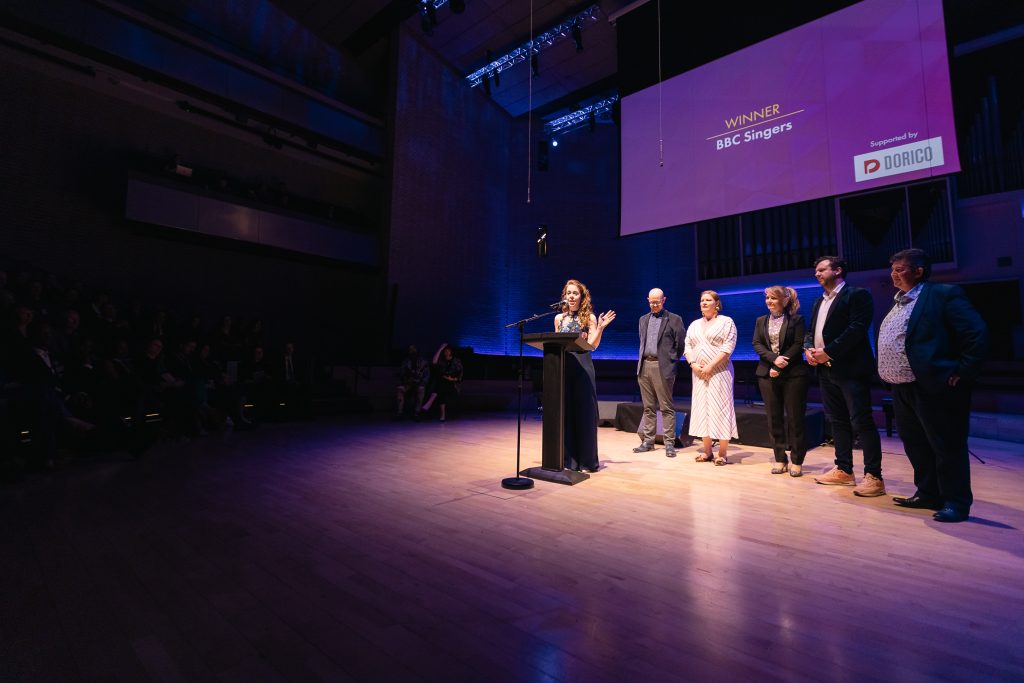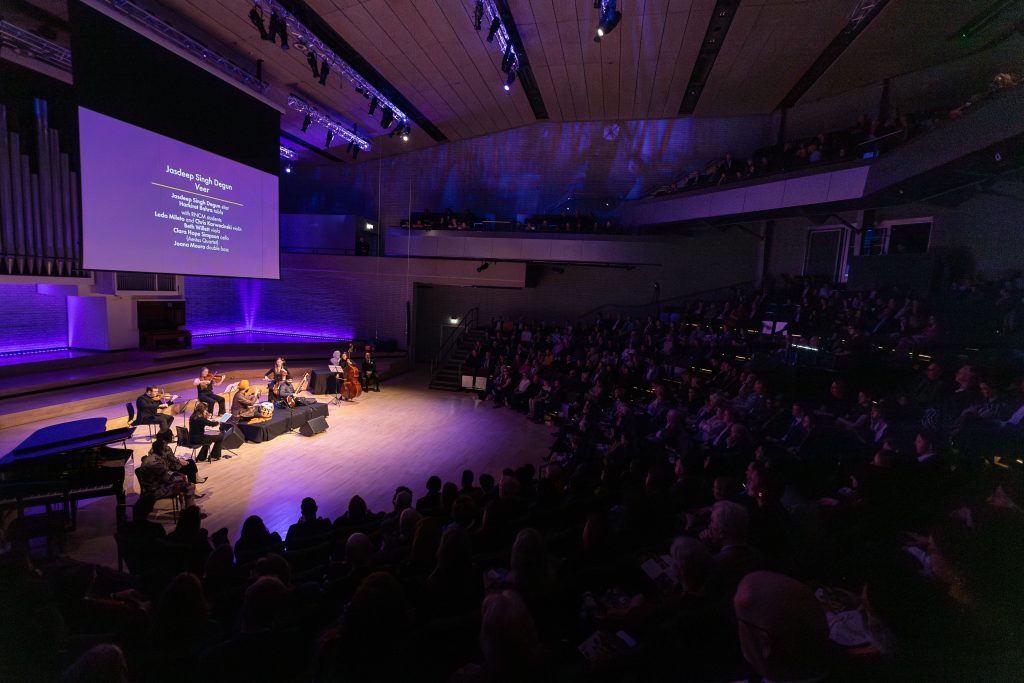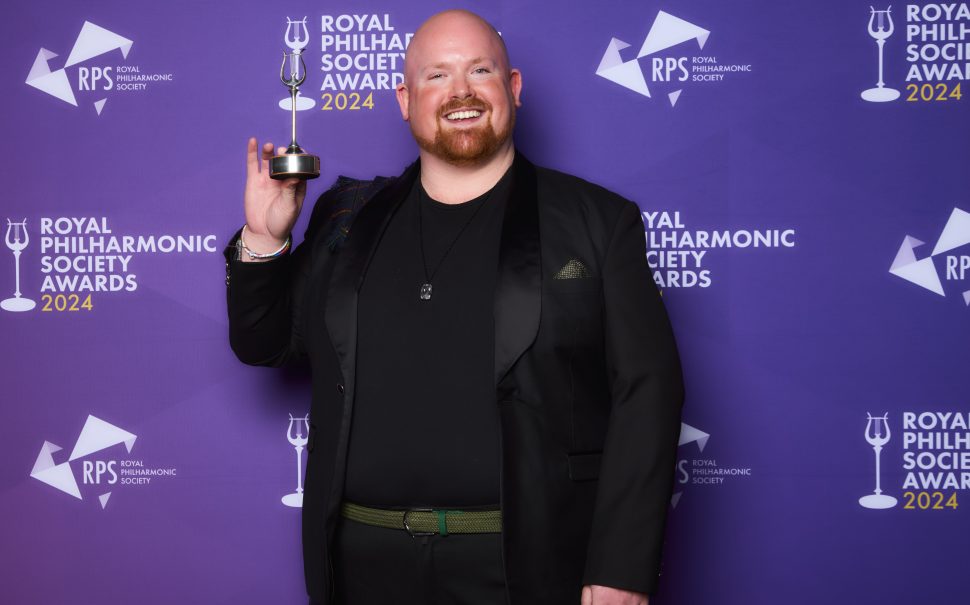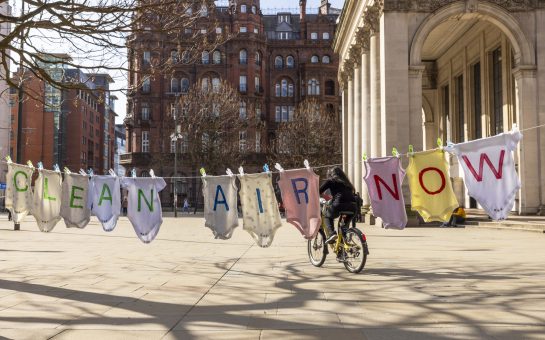Classical music has been in the spotlight for many of the wrong reasons in recent months, from slashed funding for arts initiatives to attacks by public figures for a perceived lack of ‘relevance’.
But James Murphy, chief executive of the Royal Philharmonic Society, is keen to fly the flag for classical music and to put the spotlight on more positive stories in the industry.
Mancunian Matters sat down with Murphy to talk about the decision to hold this year’s Royal Philharmonic Society Awards outside of London for the first time, the major players in Manchester’s classical music scene, and what’s next for the classical music industry.
The annual RPS Awards are among the industry’s most prestigious accolades, with gongs going for best Young Artist, Instrumentalist, Gamechanger, and Chamber-Scale Composition, among others.
Murphy explained that the Awards have evolved considerably over time, with the 2024 edition – held in March at the Royal Northern College of Music – taking place outside of London for the first time in their 35-year history.
Murphy said: “Year on year there are so many great things that are shortlisted and win that happen all across the country, and it really is a national story. So the fact that the event has taken place in London for the last 30 years didn’t feel entirely right.
“Last year there were big wins for Manchester Collective, a fantastic, fresh chamber orchestra based in Manchester, and Manchester Camerata, [who’d] made this amazing film about their work with people with dementia. When Manchester is leading the field in so many different ways it seemed like the right step to come [here]. It’s such an incredible cultural city, there’s so much classical music and that’s been the case since the Industrial Revolution.”
Formerly a sit-down dinner closed to non-industry guests, in Murphy’s tenure at the RPS the Awards have opened up to the general public too. Tickets this year were £10, and Murphy explained: “We wanted to break it out – we thought it was too good a thing to keep hidden away.
“All of us in classical music have a big responsibility to make the case for its relevance, its ability to engage, and inspire, and console, and fortify. We’ve all got to think about access in every single regard and it’s just the right thing to do so more people can get in and feel part of it. Yes, it’s an industry event, but we want this event to be for music lovers as much as music makers.
“Making tickets only £10, it’s a gesture to say, our message is ‘come and get involved, this is for you.’ Classical music is nothing without its audience. It’s really important that we embrace the audience and salute them for all they do to keep classical music alive.”

Many of the nominees and winners at this year’s Awards were Manchester-based, including Manchester Classical, a festival of classical music held in June last year with some concert tickets going for as little as £2. LGBTQ+ choir The Sunday Boys were also nominated for the Inspiration Award for amateur groups, while the Olympias Music Foundation based in Longsight were nominated in the Impact category.
Murphy said: “This tiny, tiny operation operating in Longsight, and this tiny group of individuals, because they believe in the power of music to enrich and improve lives, are doing so many amazing things for kids living there, and building pathways for those kids to get into bigger music organisations.”
A major focus of the Awards, Murphy explained, is telling a different story about classical music. He said: “It’s a very frustrating narrative that people can cast classical music as something that’s elitist or ornamental, or optional. I grew up in the north, in Kendal in the Lake District. My parents weren’t musical but there was good musical provision in schools, back in the 1980s, and classical music found me.
“I wasn’t born into it, I didn’t have any sort of privilege in my upbringing, so I carry this absolute concerted feeling with me that it can touch and enrich the lives of everybody if we let it. It’s really important that we as the curators or custodians of classical music make that case for it, that we don’t forget that special power it has.
“Too often the news headlines are about funding cuts or dwindling provision, and we just have to react as a sector. it’s not really our story, it’s a story that’s told about us. The great thing about the RPS Awards, it’s a story that we, the musical community, want to tell: ‘Think you know classical music, look at this, look at these amazing things.’”
Murphy highlights the Olympias Music Foundation’s work with children in deprived areas: “Look at things like that, on your doorstep, and how music is making a difference in society. So that’s what I’d say to anyone who thinks it’s obsolete: look again, think again. Classical music is being used to save lives. That sounds crazy, it’s not medicine, but there are activities where classical music is literally transforming for good, the lives of people who have had little hope, who have been cast to the margins of society.”
As well as the annual Awards, the RPS works year-round extended grants, commissioning and mentoring composers, and running a programme to get more women into conducting, a historically male-dominated profession.
Recent shortlists have made a concerted effort to showcase the depth and breadth of classical music in the UK. Murphy adds: “The important thing with the Royal Philharmonic Society is to tell the best story we can about classical music in the UK as it truly is today. 42% [of nominations in 2024] are people representing the global majority, which is way over the national average, and they’re really brilliant. There’s not a single person who represents an underrepresented voice who’s there for that reason, they’re there because they’re really good. We’ve changed and diversified our panels so they’re different every single year, so there’s no entrenched bias, and what they’re doing musically has to be really really good. This shortlist is a really powerful signal that it’s not just the people you think that are making music.”

One of those making waves is Leeds-based Jasdeep Singh Degun, winner of the Instrumentalist category for his work playing the sitar, and also nominated for ‘Orpheus’ in the Large-Scale Composition award. He said: “This kind of stuff doesn’t happen to Indian classical musicians, especially being from up north as well. I’m still pinching myself that it’s actually happened.
“For sure [it’s more special being up north]. I brought an entourage of my teacher and my parents, and if it was in London they probably wouldn’t have come down because it’s so far. So being in Manchester brings it home more to them, and all the work I do is north-based, so it’s really nice to have the awards up north.
“I’m probably the first Indian classical musician to ever be nominated, let alone win. It’s just unprecedented and I’d like to see more Indian classical musicians being highlighted and spotlighted. Getting this actually means more, it’s an award for Indian classical musicians in this country.”
Singh Degun also performed his composition Veer alongside Harkiret Bahra playing the tabla and string instrument students from the Royal Northern College of Music. He added: “Being given the platform to perform here is wonderful, to make a statement to say yes, we’re here, and thank you.”
The Awards will be held out of Manchester next year, but Murphy is keen to continue highlighting music across the country and the musical heritage of the city. He said: “The roadshow has to move on! We will go back to London in the future, it’s not confirmed quite where we go next – but not too far from Manchester!
“We all talk about partnership in music and the arts, and the Royal Northern College of Music represent the best of it. The north has made us feel very welcome.”
Feature image: Nicky Spence, winner of the Singer Award. Credit: Lee Isserow, Vessel Studios. All images used with permission of the Royal Philharmonic Society Awards.




